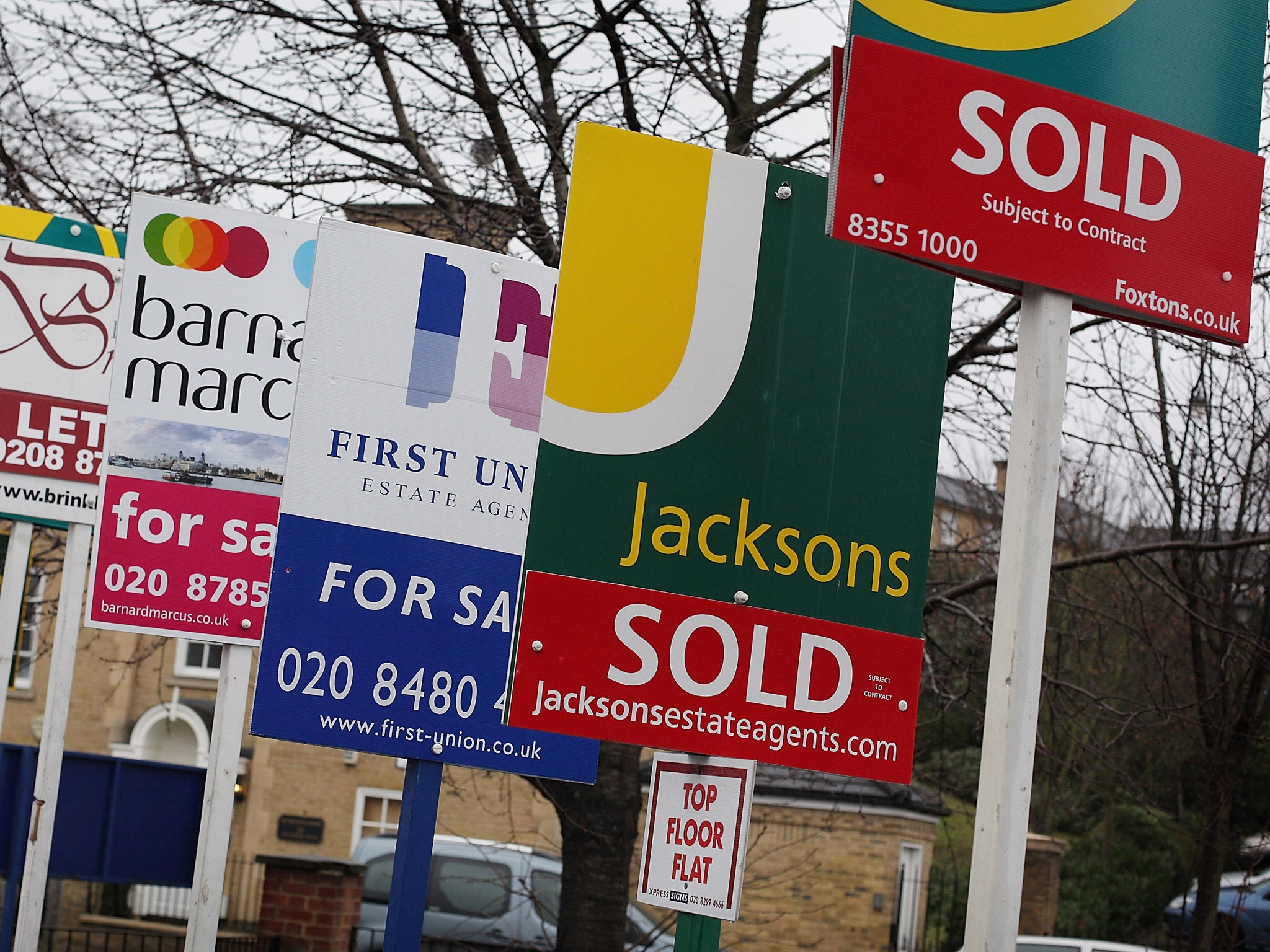House prices up 5.8% as Nationwide warns of looming affordability crisis
Year-on-year price rise nonetheless still leaves market some way from 2007 peak

Your support helps us to tell the story
From reproductive rights to climate change to Big Tech, The Independent is on the ground when the story is developing. Whether it's investigating the financials of Elon Musk's pro-Trump PAC or producing our latest documentary, 'The A Word', which shines a light on the American women fighting for reproductive rights, we know how important it is to parse out the facts from the messaging.
At such a critical moment in US history, we need reporters on the ground. Your donation allows us to keep sending journalists to speak to both sides of the story.
The Independent is trusted by Americans across the entire political spectrum. And unlike many other quality news outlets, we choose not to lock Americans out of our reporting and analysis with paywalls. We believe quality journalism should be available to everyone, paid for by those who can afford it.
Your support makes all the difference.House prices surged by 5.8 per cent year-on-year in October, representing the fastest rate of climb in over three years, according to the latest figures from Nationwide.
The building society said prices have now gone up for six months in a row, and October’s rise of 1 per cent was the biggest upswing since July.
Nationwide said that meant the average price of a home had reached £173,678 – still some 7 per cent down from prices at their peak in 2007.
Mortgages are now being offered under the Government’s flagship Help to Buy scheme, with state-backed Royal Bank of Scotland (RBS), NatWest, Halifax and Bank of Scotland soon to be joined by HSBC, Santander and Barclays in lending to people with deposits as low as 5 per cent.
Critics of the initiative say it will drive prices up without addressing the housing shortage – an opinion also expressed by Nationwide.
Chief economist Robert Gardner said: “House price growth has accelerated as buyer demand has picked up more quickly than the supply of new homes.
“The risk is that if demand continues to strengthen while the supply of property remains constrained, affordability could become stretched.
“Indeed, average wages have continued to decline in real terms even though employment growth has been fairly robust in recent years.”
Mr Gardner said that despite the existence of longer-standing schemes such as Funding for Lending, it is only in more recent months that consumer confidence in the economy has “improved markedly”, increasing the willingness of would-be buyers to step into the market.
Nationwide’s figures are calculated based on the mortgages it gives its customers. Early this month, the Office for National Statistics said prices as a whole across the UK – based on all mortgage completions – had reached a record high of £247,000.
By contrast, the Land Registry reported a more modest rate of increase, based on actual sales and including cash buyers. According to BBC News reports, it said prices had gone up just 3.4 per cent in the year to September, only slightly higher than inflation.
Join our commenting forum
Join thought-provoking conversations, follow other Independent readers and see their replies
Comments